LAW OF COMMERCE: Assessing Tanya's Role as Trustee - [University]
VerifiedAdded on 2021/05/31
|5
|877
|62
Case Study
AI Summary
This case study analyzes a scenario in the Law of Commerce concerning Tanya, a wealthy businesswoman with six children, and her desire to become a trustee to save on taxes. The assignment examines whether Tanya can legally fulfill the duties of a trustee as defined by the Corporations Act 2001 and the Trustee Act 1925 (NSW), focusing on the legal relationship between a trustee and beneficiaries, as well as the powers and responsibilities of a trustee. The case refers to precedent cases like Re Levin & Co Ltd [1936] NZLR 558 and Cowan v Scargill [1985] 1, and emphasizes the importance of acting in the best interest of the beneficiaries, which in this case are Tanya's children. The analysis concludes that Tanya can legally become a trustee and perform her duties, including managing tax affairs and preserving assets for her children, referencing the Trust Act of Queensland, which outlines the legal framework for trustees. The assignment underscores the advantages of trusts for tax planning and the importance of adhering to the legal requirements for trusteeship.
1 out of 5
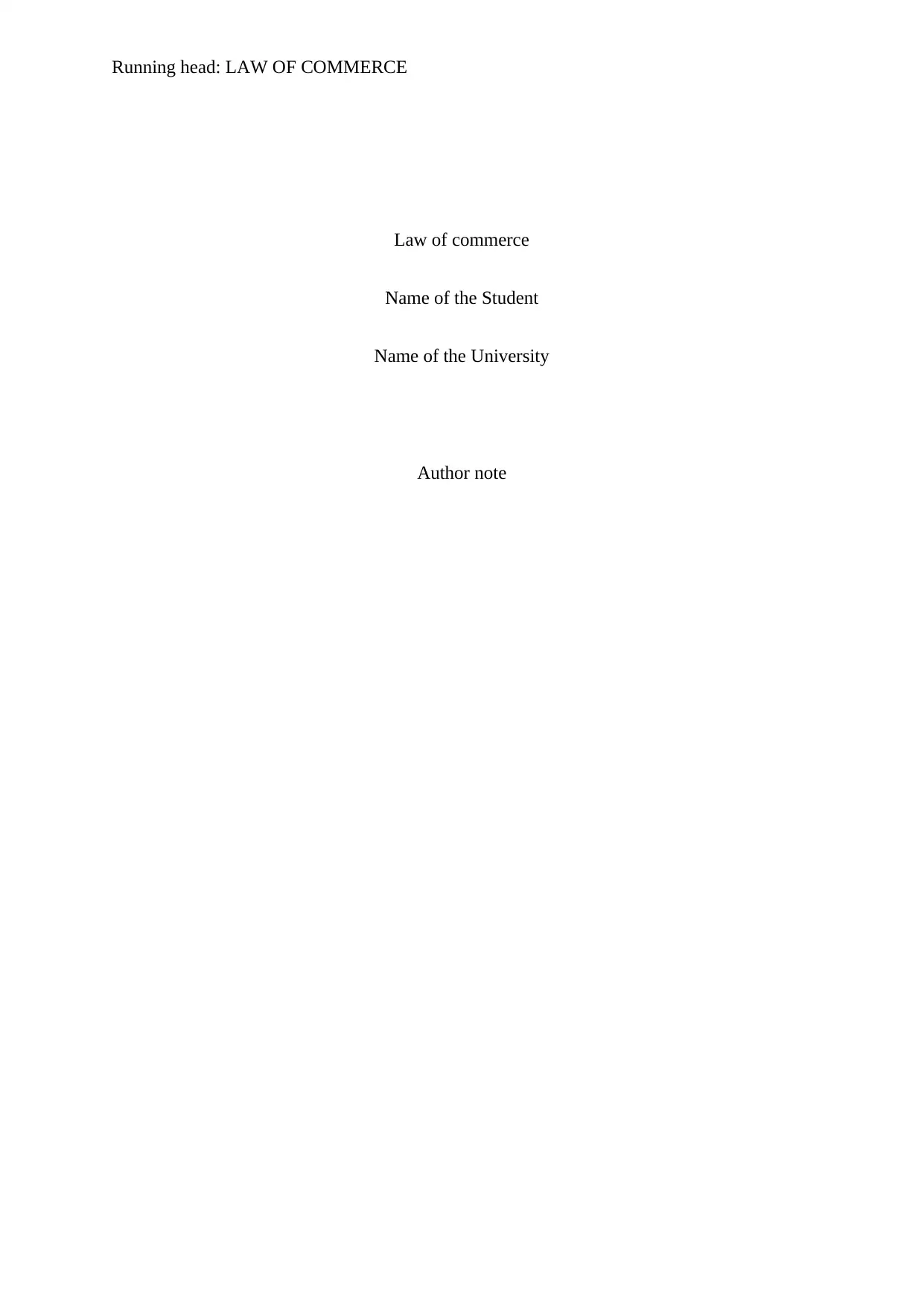
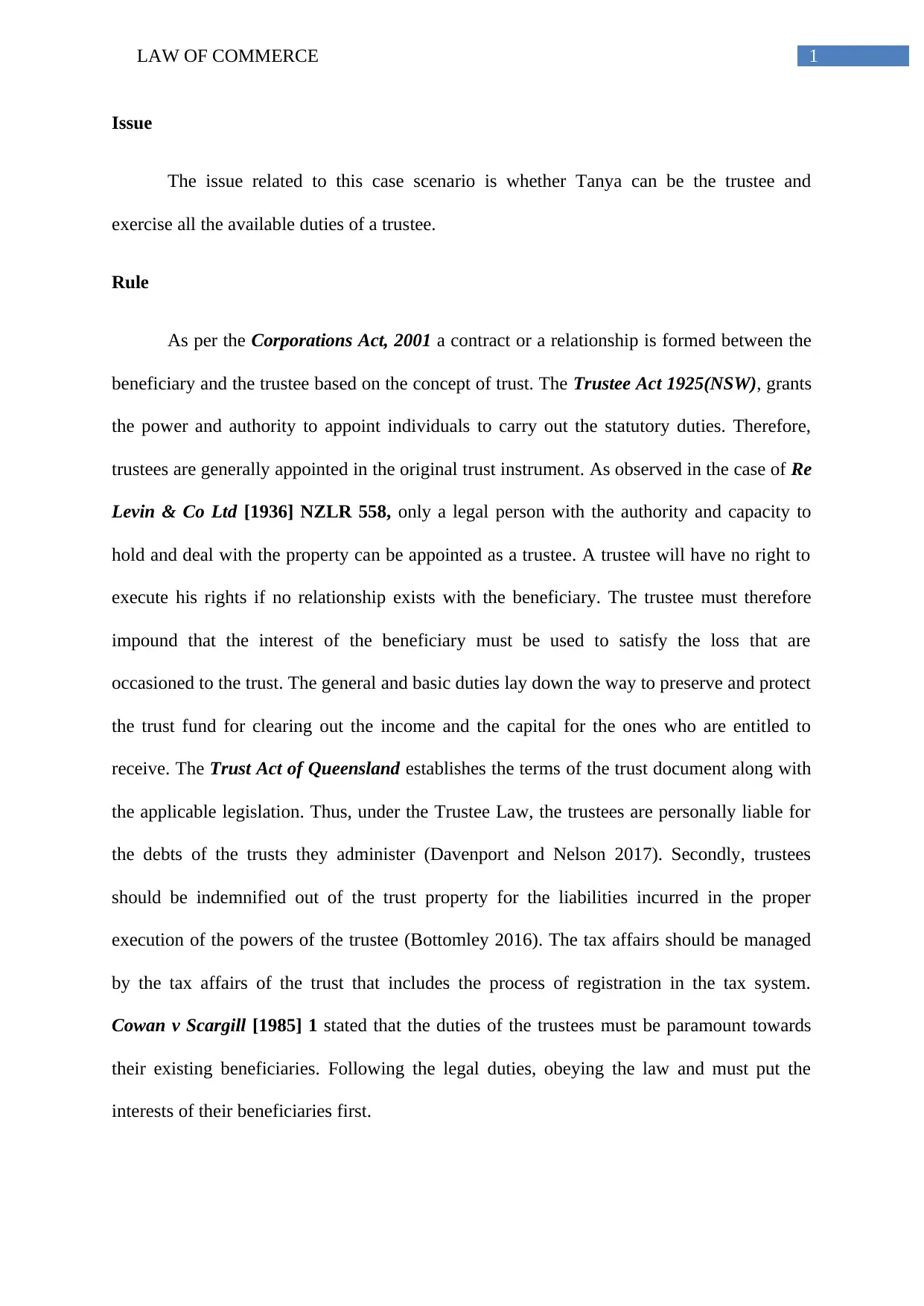
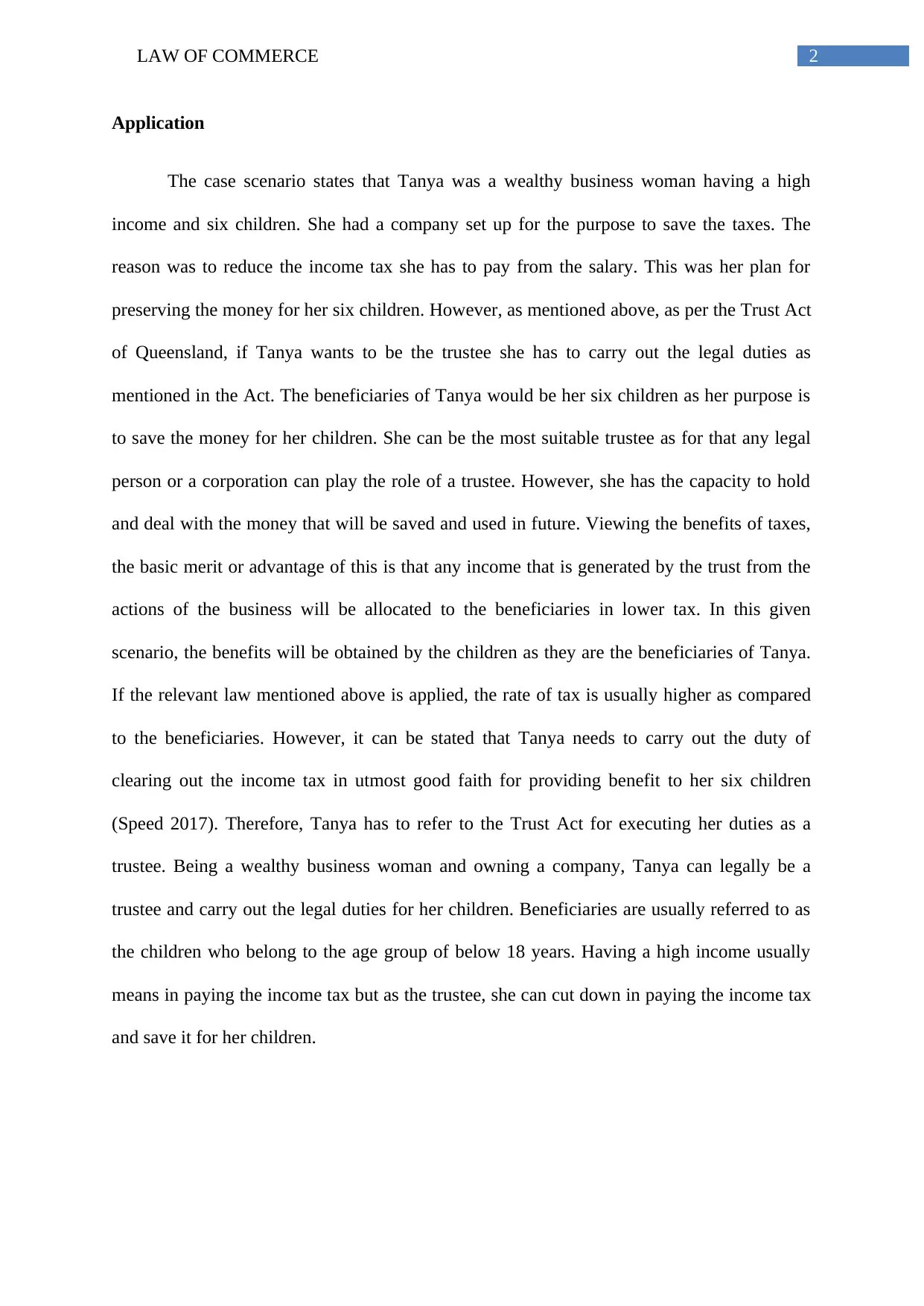

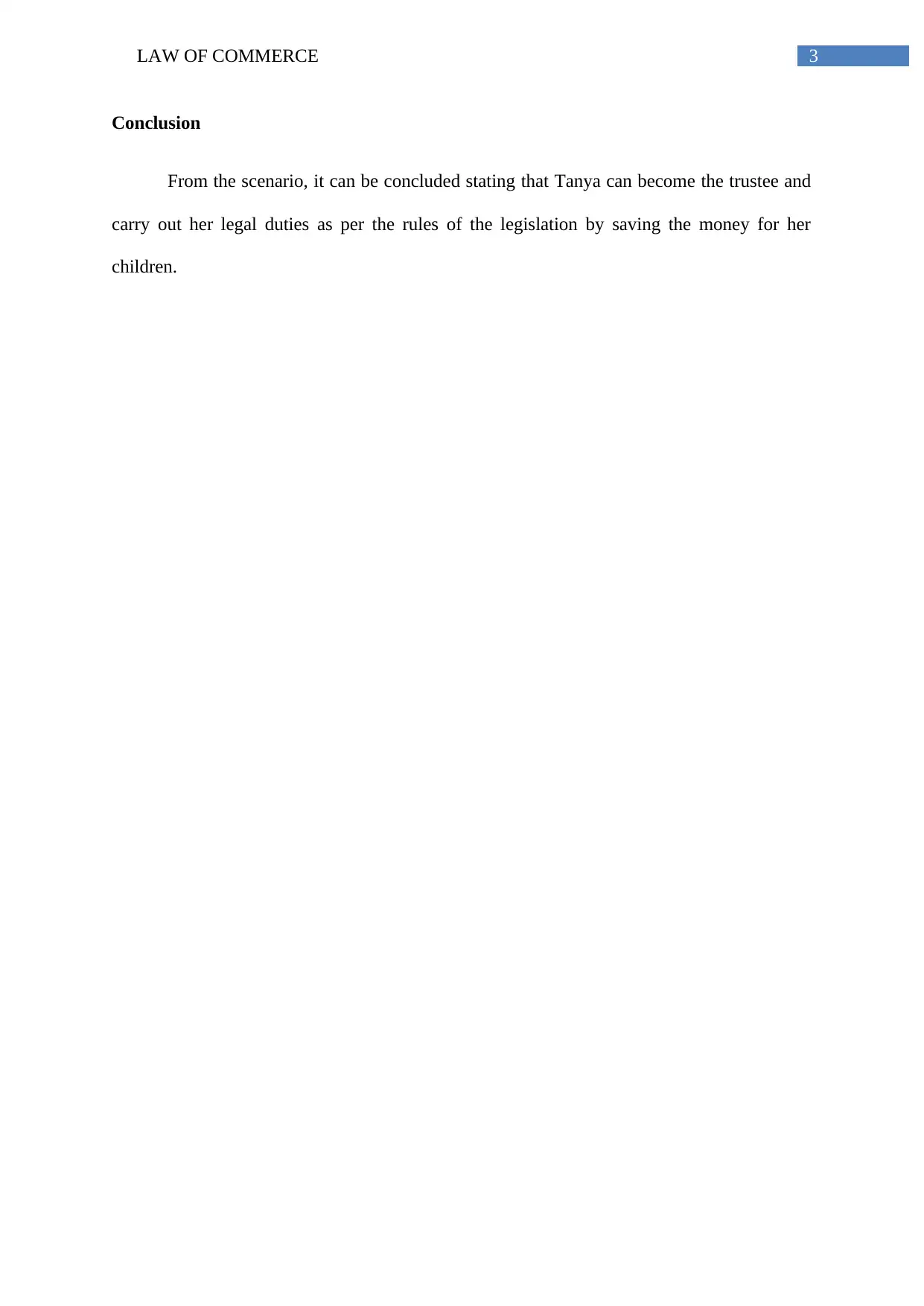
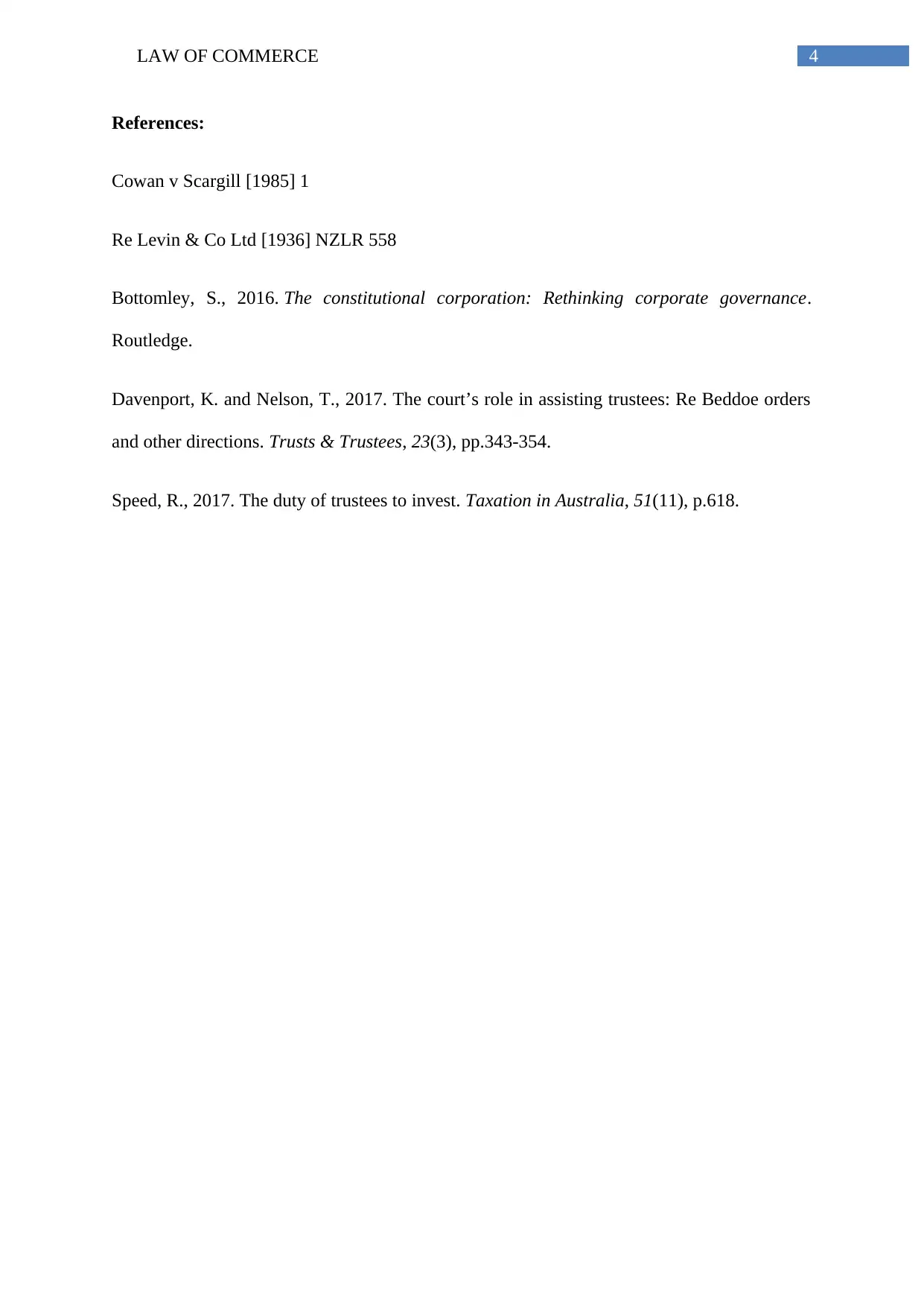





![[object Object]](/_next/static/media/star-bottom.7253800d.svg)